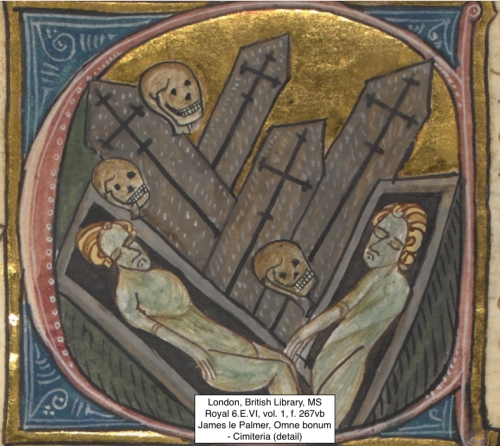 Dear Colleague,
Dear Colleague,
We hope you are well and are staying safe.
In the present crisis, as a growing number of our medievalist colleagues find themselves facing financial precarity, job insecurity, and difficulty accessing research resources, your Medieval Academy membership matters more than ever. Please renew by June 30 in order to avoid an interruption in your membership benefits.
With your help, the Academy increased its support of members in 2019, especially student, independent, and contingent scholars, through the numerous awards and fellowships offered annually. We have recently implemented programming in support of medievalists of color and of medievalists working in various professional contexts, and we are working to improve the representation of the Middle Ages in K-12 classrooms. As we work towards a more expansive Middle Ages, we are also working to build a more inclusive Medieval Studies. We sincerely hope that you will renew your valued membership in the Academy as we continue this work in 2020.
The combination of the dramatic recent downturn in the stock-market and an anticipated decrease in dues revenue will directly and significantly impact the MAA’s budget. If you are able to renew your membership for 2020, please do. Your membership dues will directly help us continue to award grants and fellowships in 2020 and beyond; keep dues at a lower level for independent, contingent, unemployed, and retired medievalists; and expand our programming.
You can easily pay your dues and/or make a donation through the MAA website where, after you sign into your account, you can also adjust your membership category if necessary. Please consider supplementing your membership by becoming a Contributing or Sustaining member or by making a tax-deductible donation. In order to make membership more affordable for those in financially precarious circumstances, we have recently revised our dues structure.
You may also wish to remember the Academy with a bequest as a member of our Legacy Society (for more information, please contact the Executive Director).
When you renew, please take a few minutes to update your profile page so that members with similar interests can find you, and you can find them. You can also check a box to indicate your interest in serving on a Medieval Academy committee or reviewing for Speculum. Your profile page now includes an option to indicate gender and racial/ethnic identity. This information will not be visible to other members, but it will help the Academy immensely as we strive to increase our understanding of member demographics and work to improve diversity and inclusivity in Medieval Studies. If you have forgotten your username and/or password, please contact us for assistance.
Thank you for your support. We look forward to working with you in 2020 and hope to see you at the 2021 Annual Meeting of the Medieval Academy at Indiana University, Bloomington.
Stay safe –
Renate Blumenfeld-Kosinski, President
Lisa Fagin Davis, Executive Director
p.s. if you have already renewed, please ignore this message and accept our thanks!

 Dear members of the Medieval Academy of America,
Dear members of the Medieval Academy of America,
 Dear Colleague,
Dear Colleague,

